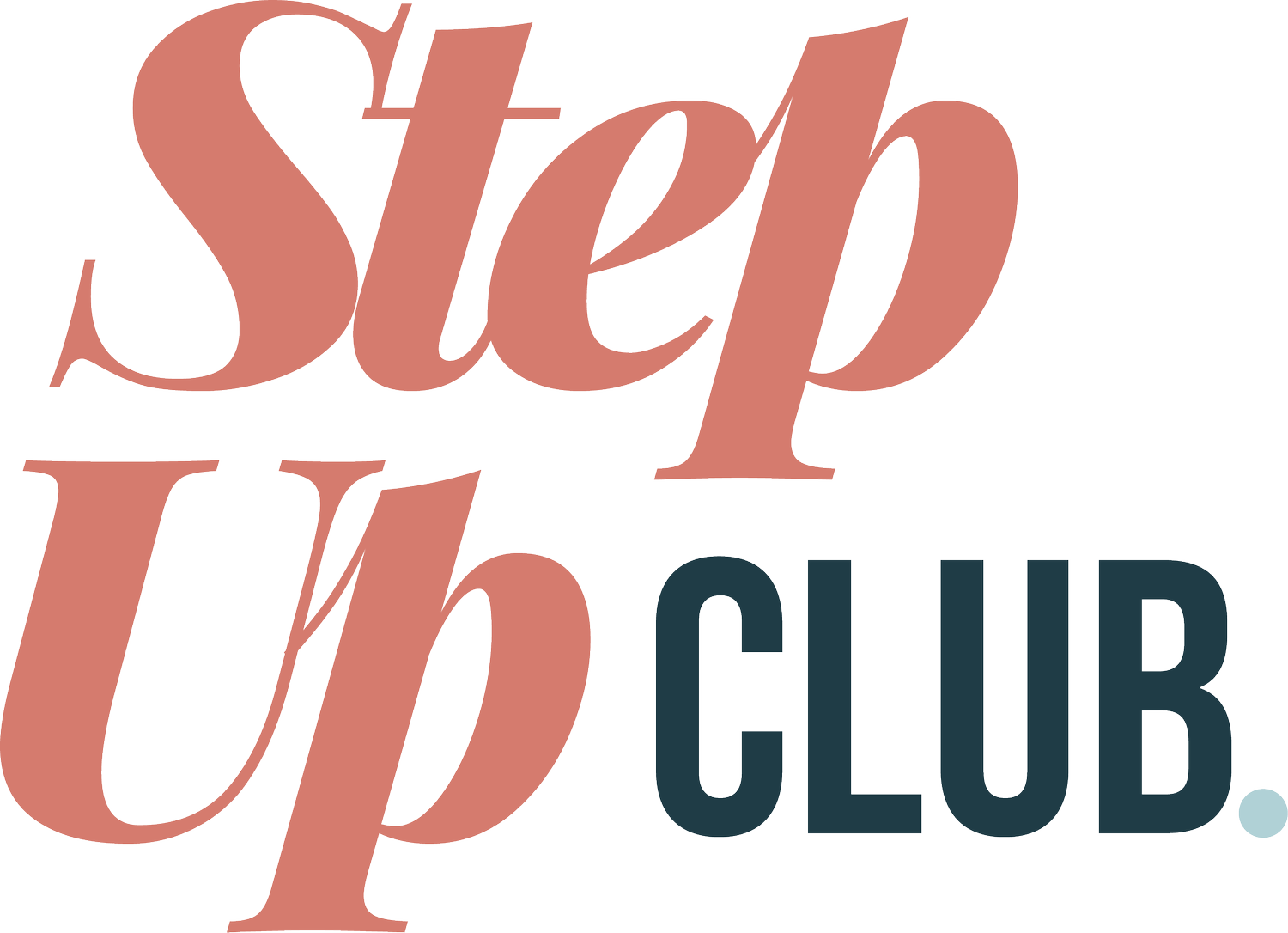One Failsafe Way To Reduce Overwhelm
Jennifer Spurr’s brilliant Bye Bye Burnout workshop for the Step Up Club has inspired me to share her single most important takeaway.
And it probably isn’t what you think.
A tiny bit of background about why we ran the session in the first place: women’s burnout is at a record high. Over 40% of us feel overwhelmed by work and life, and 56% are more stressed than they were a year ago.
These are worrying statistics that hide some truly awful individual stories.
It’s also important to point out that you don’t need to be on your knees (I want to make sure we catch you before you get there) to begin feeling the effects of having too much on your plate, feeling like something is off at work or needing to manage tricky relationships.
Overwhelm isn’t only triggered by workload. Often, it’s the impact of others that tips the balance; a boss who expects you to work out of hours, a tricky team member, not seeing enough people can do it too. Despite our constant digital interactions, we are lonelier than ever, which can increase stress and insecurity, ultimately presenting as burnout.
Throw into the mix that since emails arrived onto our phones about 15 years ago, our work days have increased by about 2 hours (shocking), and that rose by another 45 minutes thanks to the pandemic, it’s little wonder we are where we are.
So what can we do today to help ourselves? Because, as I always say when it comes to stress and burnout, responsibility mainly lies with your employer. You should work in inclusive and safe enough cultures that allow you to share your worries without feeling like you’ll be judged, and yet, only about a quarter of us are comfortable enough to talk about our mental health at work.
Here Is One Failsafe Way To Reduce Overwhelm
Jennifer’s single most important takeaway, and I’m going to caveat this by saying it might not sound action-focused enough at first (but bear with me) is to build your self-awareness.
I know, this might not immediately answer your questions around creating and maintaining safe boundaries, managing toxic colleagues or coping with too much work, but it is a sustainable starting point that will lead you where you need to be.
Let me explain.
When you know your overwhelm and burnout triggers, you can better manage the causes.
Ditto, when you are aware of the impact that overwhelm can have on your physical and mental health, you can be alert to when things start to slide.
On the first point, take a few moments to write a list of your energy drains. Think about situations, people, certain tasks, your environment, those types of things, to get you going.
Here is a short list of my overwhelm triggers:
Not knowing how to do something
Having boring admin that I’m slightly ignoring (and hoping will magically go away) (it won’t)
Not batching my work - scattergun does not work for me
Tech issues
Comparing myself to others
Not getting outside enough; not moving my body
Being alone for too long
Now you try.
Once you have this list, you can start to manage your time and energy better. You could also write a list of energy givers, the things you rely on to help you feel more peaceful and able to cope.
Another good way to build self-awareness around burnout, is to recognise (and again write down, if it helps) your overwhelm fallouts. Jennifer gave us a simple structure to help on this front: Control, Competence and Confidence.
It is useful to use these 3 buckets to help us better plan around our triggers. You could link the fallouts to the triggers to really start to get behind what sets you off, because as she said, we’re all different and our tolerances change too.
When we are fully aware of our route to burnout though, we can start to protect ourselves and not let that match burn right out.
We also talked about:
How to hand things over to others
Creating boundaries
Having difficult conversations
Managing difficult bosses (with wayward expectations)
Small acts of self-care
It was such a worthwhile session. If you are feeling over tired, stressed, lacking focus or just a bit stuck with work, have a watch.
And of course, when things get tough (this is me speaking now) remember to ask for help and lean on others.
‘Thank you so much, I felt so supported’ was my favourite comment in the chat last night. Our Step Up Community really is a place to create some thinking space, build your skills and find the support we all need and deserve in these crazy times.
If you haven’t already seen, our new Corporate Membership product now means that you can get access to everything we have on offer, via your organisation.
And if your burnout is affecting your life in a way that feels like you really cannot cope, please speak to your GP.

